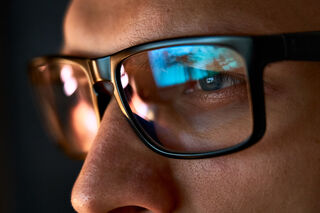Pornography
7 Major Myths About Pornography
There is so much confusiony, it's easy to be scared.
Posted April 9, 2021 Reviewed by Ekua Hagan
Key points
- Pornography is not an addiction.
- Pornography does not cause sexual, relationship or mental health problems.
- The anti-porn movement ignores the science of sexology.
- If you struggle with your pornography use, seek a therapist who is sex-positive and doesn't work with the addiction framework.

The topic of pornography is a difficult discussion to have for many people. There seems to be a cultural and social panic about it.
Much of what is online and in books on the subject demonize porn, creating fear. The instant access to pornography through devices is relatively recent. It is easy to be in a panic about it if we think that porn is everywhere, only a few taps away, invading the private space of our homes.
People are free to think of pornography whichever way they want to think of it. Watch it or don’t watch it. It doesn’t bother me. I’m neither pro-porn nor anti-porn. However, what bothers me is the vast amount of wrong facts about porn that is grossly misleading the public and unscientific. There is so much misinformation that the real science gets drowned in so much noise.
The focus of this post is to bring some facts back to the debate. Some of these may be uncomfortable truths. But as a clinician, I’m led by clinical evidence rather than personal opinions or popular views.
The truth about pornography
It is easy to demonize porn and to point fingers at it for everything that is going wrong in people’s relationships or sex lives. Listening to anti-porn narratives can definitely signpost you to the wrong places. Focusing on stopping porn-watching will not fix your sexual issues, your relationship problems, or your sense of well-being. It won’t teach you anything about yourself, your erotic mind, how to achieve psychological well-being. Being preoccupied with stopping watching porn will only teach you how to repress some parts of your erotic mind, which only set you up to face them again in the future, in other forms — maybe even worst forms. I’m sorry to burst the bubble.
Let me debunk some myths.
- Porn makes a bad society. Wrong. Data shows that sexual crimes are lower in areas where there is greater access to porn.
- Porn creates objectification. Wrong. Objectification is focusing on a body part and making it an object of sexual gratification without considering the whole human being. Research in sexual fantasies shows that men and women, even those who do not watch porn, objectify. In fact, it seems that objectification is a part of sexual desire and sexual arousal. The Diet Coke advert where the male model takes his t-shirt off for the delight of women staring at him in lust is a good example of objectification that appears to be acceptable. Some people may objectify more than others but it is largely a normal human thing to do. However, when men objectify, it can be perceived as being more threatening, understandably, because of the number of men being sexually violent to women. Indeed, some men can cross the line between fun objectification and making women feel intimidated. Another interesting study shows that people watching porn focus on the porn performers’ faces rather than genitals because the most arousing part is to see the performers enjoying themselves, indicating that there is an emotional component to watching porn. Men and women have sexual fantasies on an emotional level.
- Porn creates relationship problems. Wrong. Porn is the easy and convenient way to make an exit to avoid the problems in the relationship but it doesn’t create relationship problems. Other things create relationship problems, like sexual shame, high morals, contempt, anger, power struggles, low self-esteem, distorted beliefs about sex and relationships, insecurities, only to name a few.
- Porn creates erectile dysfunction. Wrong: This is a very popular view promoted by anti-porn campaigns that is fiercely inaccurate and unscientific. They even came up with an acronym to make it more believable: PIED: Porn Induced Erectile Dysfunction. Several scientific studies have debunked that myth. In fact, being shamed for watching porn is more likely to cause erection problems than the porn itself. The science of sexology has also confirmed that porn does not cause any sexual or mental health problems. The men who have erection problems and other sexual problems often turn to porn because it is the easiest area of enjoying one’s sexuality without the anxiety of "performance," so it is more enjoyable. Demonising porn won’t fix the sexual problems, it might even make it worse. The best way to resolve sexual problems is with sex-positive psychosexual therapy.
- Porn "porn-ifies" the brain and rewires it negatively, so the brain needs to be rebooted. Wrong. This is another popular opinion that has no basis in sciences at all. I’m going to burst your bubble again: The brain is not a computer and there is no reboot button. Instead, the brain continuously develops. Once we watch something that titillates us, it tends to stay in the brain and we tend to return to it because it is pleasurable and fun. The same process happens if we watch something that repulses us; we tend to stop watching it and we never return to it (which disproves another inaccurate view that porn habits escalate to illegal territories). The brain keeps developing with any experiences that we have. If we keep having anxiety-filled experiences having sex with someone and anxiety-free watching porn, porn will continue to be more attractive. Stopping watching porn and stopping masturbating for 90 days isn’t going to reboot your brain. In fact, it’s going to increase your sexual shame and your anxiety. And it won’t teach you how to have anxiety-free sex with partners in the way that really turns you on, which is the crux of the problem, actually.
- Watching porn leads to sexual offending and sexual violence towards women. Wrong. This is probably the most fear-mongering propaganda against porn. In fact, proper research consistently proves the opposite. Watching porn and masturbating is not pathological and does not indicate psychological problems. Several scientific research studies show that people watching porn do not have more misogynistic views towards women compared to those not watching porn. Some fascinating and surprising research even showed that men watching porn have a tendency to have more egalitarian views towards women.
- Porn is addictive. Wrong. This is another well-known myth based on moralistic opinions rather than science. "Pornography addiction" is being consistently rejected from all medical and psychological bodies as there is no clinical evidence of addictive properties to porn. The World Health Organisation (WHO) agreed on diagnostic criteria for compulsive sexual behaviours (ICD-11), led by scientific data, and has explicitly rejected the idea of "sex addiction" and "porn addiction."
Most anti-porn and anti-masturbation organisations and books often cite hundreds of "studies" and "brain scans" to prove their point. Don’t be intimidated by it! Most "studies" cited in those websites and books are not scientifically sound because they have poor methodologies and they fail to measure the relationship between porn, masturbation, and sexual satisfaction. They also conflate causation and correlation. They ignore many important facts.
How to address real issues with porn
Of course, many people do struggle with their porn use. Because it is not an addiction or a character defect, we can best serve the public by stopping the porn panic and focusing on what the real issues are: poor sex education, sexual shame, moralistic (or religious) values about porn, the insecure relationship dynamic with a partner(s), unsatisfying sex life with a partner(s), and pre-existing sexual problems. Find a psychosexual and relationship therapist who is sex-positive and doesn’t work with the addiction framework.
To find a therapist, please visit the Psychology Today Therapy Directory.
Facebook image: insta_photos/Shutterstock


